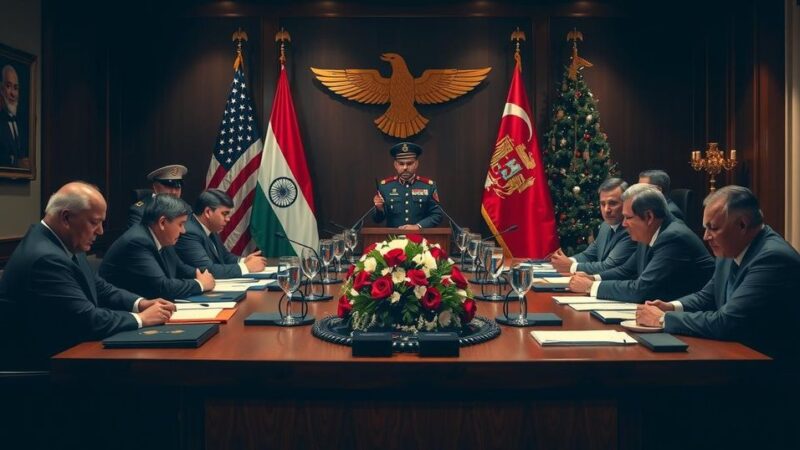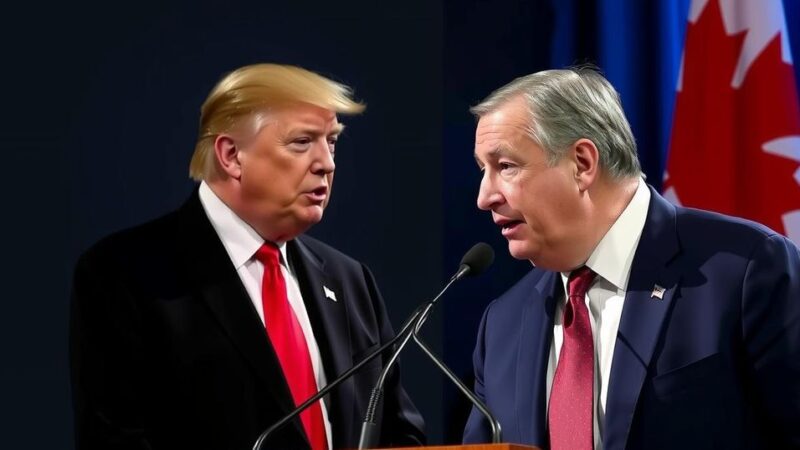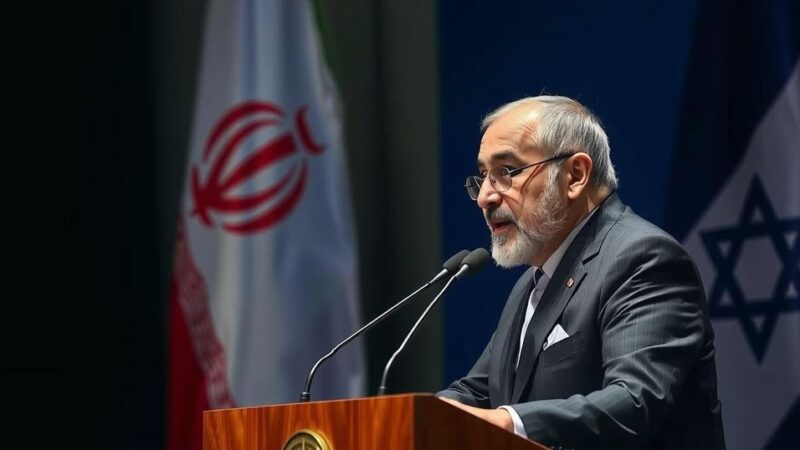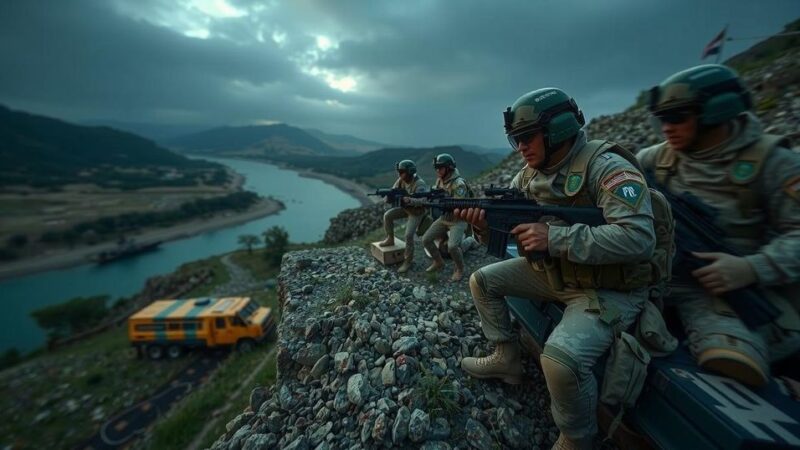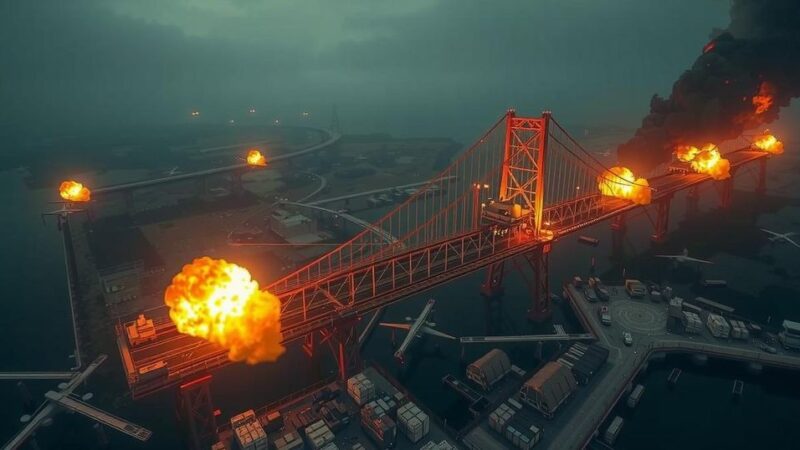Hezbollah leader Hassan Nasrallah has been killed in an Israeli airstrike in Beirut, prompting widespread reactions across the Middle East. The attack resulted in multiple casualties, including Iranian officials. Hezbollah and its affiliates mourn his loss while Israeli leaders celebrate the strategic operation. Regional leaders express solidarity with Hezbollah, and concerns grow regarding potential retaliations from Iran and Hezbollah following this escalation.
The death of Hezbollah leader Hassan Nasrallah following an Israeli airstrike in Beirut on Friday has elicited a strong response from various leaders and groups across the Middle East. With an estimated 80 bombs dropped on Hezbollah’s headquarters, the operation, termed “New Order” by the Israeli military, left at least 11 dead and 108 injured, according to Lebanon’s Health Ministry. The airstrike also claimed the life of Abbas Nilforoushan, a high-ranking commander in Iran’s Islamic Revolutionary Guard Corps. Hezbollah has mourned Nasrallah, recalling his nearly 30 years of leadership as that of a “brave martyr.” Meanwhile, Israeli Defense Minister Yoav Gallant characterized the operation as a pivotal measure against terrorism. In contrast, Iranian Supreme Leader Ayatollah Ali Khamenei condemned the assassination, calling upon Muslims to unite against Israeli aggression, asserting that “the fate of this region will be determined by the forces of resistance.” Hamas labeled the airstrike a “cowardly act of terrorism” and extended solidarity to Hezbollah, echoing sentiments of mourning also expressed by Yemen’s Houthis. The Lebanese government declared a three-day mourning period, with caretaker Prime Minister Najib Mikati emphasizing the danger looming over Lebanon. Former President Michel Aoun lamented the loss of Nasrallah, declaring him a distinguished leader committed to national resistance. Turkish President Recep Tayyip Erdogan condemned the Israeli actions but refrained from mentioning Nasrallah directly, suggesting Israel’s increasing recklessness was backed by its international supporters. Simultaneously, Iraq and Syria announced public mourning for Nasrallah, with Iraqi Prime Minister Mohammed Shia al-Sudani denouncing the act as a “criminal act”. Contrarily, there were reports of celebrations in certain areas of Syria, underscoring the complex sentiments surrounding Hezbollah’s position in the region. In the United States, President Joe Biden characterized Nasrallah’s death as a “measure of justice” for his numerous victims, affirming support for Israel’s right to defend itself against Hezbollah. Vice President Kamala Harris echoed this sentiment with a similar statement, reaffirming an unwavering commitment to Israel’s security. Hezbollah has since retaliated, launching approximately 90 rockets into Israel’s western Galilee. As the conflict escalates, concerns persist over Iran’s potential retaliatory actions, despite indications that Iran prefers to avoid a broader war. The ongoing military offensive in Lebanon has already resulted in over 700 casualties, heightening tensions in the region.
The airstrike that killed Hassan Nasrallah represents a significant escalation in the ongoing conflict between Israel and Hezbollah, as well as broader Middle Eastern geopolitics. Hezbollah, recognized as a key ally of Iran, has been engaged militarily in Lebanon and has played a notable role in the Syrian civil war supporting President Bashar al-Assad. Nasrallah’s leadership has been pivotal for the organization, which has a considerable influence on Shiite politics in Lebanon and serves as a proxy for Iranian interests in the region. This airstrike follows a pattern of Israeli military actions aimed at reducing the operational capabilities of Hezbollah and deterring Iranian influence.
The assassination of Hassan Nasrallah marks a critical moment in Middle Eastern relations, reverberating through various political factions and countries. The responses from regional leaders underscore the complexity of alliances and enmities shaping the landscape. With retaliatory actions already underway and a backdrop of military operations resulting in high casualties, the potential for further escalation remains a pressing concern as major powers navigate their positions in the evolving situation.
Original Source: www.al-monitor.com

